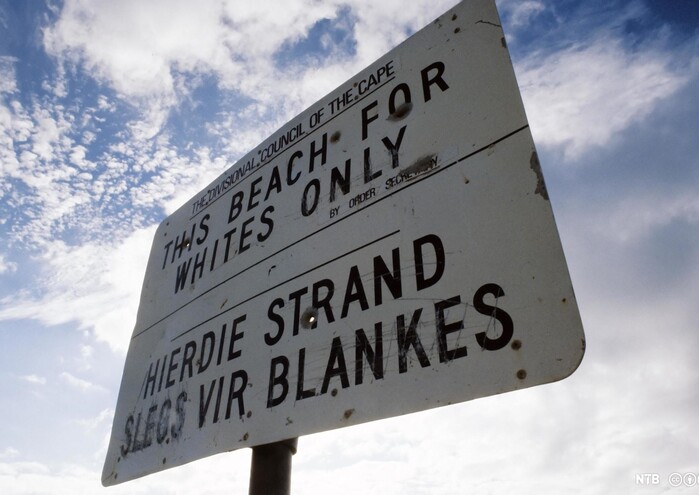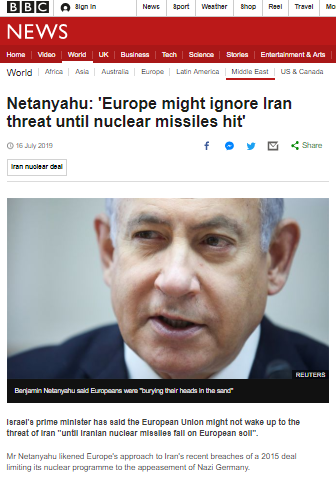“Use of the apartheid label” against Israel “is at best ignorant and naïve and at worst cynical and manipulative”, wrote Benjamin Pogrund in 2005.
Pogrund is a South African-born Israeli who served as a member of Jerusalem’s delegation to the UN World Conference against Racism in Durban. It was at that very UN conference, notorious for the tsunami of antisemitism that took place under its auspices, that, Pogrund later observed, the lie that Israel is an “emerging apartheid state” began to gain traction.
Pogrund, a former Cape Town-based journalist who reported on the crimes of the Pretoria regime in the 70s and 80s, rejected the apartheid label pinned on Israel repeatedly over the years, including in a 2015 Guardian op-ed, where he wrote:
Black South Africans did not have the vote. Skin colour determined where you were born and lived, your job, your school, which bus, train, taxi and ambulance you used, which park bench, lavatory and beach, whom you could marry, and in which cemetery you were buried.
Israel is not remotely like that. Everything is open to change in a tangled society in which lots of people have grievances, including Mizrahi Jews (from the Middle East) or Jews of Ethiopian origin. So anyone who equates Israel and apartheid is not telling the truth.
As recently as 2017, in a NY Times op-ed (“Why Israel is Nothing Like Apartheid South Africa”) he refuted those charges.
Yet, in a Guardian op-ed over the weekend, originally published at Haaretz, he argued that the charge is now true (“I have long rejected claims that Israel is an apartheid state. Now I believe that is where it is heading“, Aug. 26).
So, what’s changed since 2017?
While he does acknowledge his dramatic change in views on the charge of ‘creeping apartheid’, his op-ed fails miserably at explaining what new facts on the ground prompted his conversion.
Here’s exhibit number one in the op-ed:
the accusation [of apartheid] is becoming fact. First, the nation-state law elevates Jews above fellow citizens who are Arab – Muslim, Druze, Bedouin and Christian.
First, no conceivable interpretation of nation-state law, which anchors in law Israel’s status as the “national home of the Jewish people”, can be read as “elevating Jews”, legally or in any substantive fashion, above Arabs.
One of the few elements of the law some point to to charge that it codified discrimination is the change in the status of Arabic from the second official state language (alongside Hebrew) to one holding “special status” in the state. However, it’s quite common, even among democracies in the EU, for states where multiple languages are spoken to have only one official language.
Additionally, as the left-leaning Israel Democracy Institute commented at the time of the law’s passage, the nation-state bill is largely “symbolic” and “educational”.
Here’s Pogrund’s second argument:
Second, Israel can no longer claim security as the reason for our behaviour in the West Bank and the siege of Gaza. After 56 years, our occupation can no longer be explained as temporary, pending a solution to the conflict with Palestinians. We are heading toward annexation, with calls to double the population of Jewish settlers in the West Bank, which currently stands at around 500,000.
First, it’s quite difficult, due to his imprecise prose, to understand what he means in the first sentence. Why, a competent editor reviewing his draft would have asked Pogrund, can Israel no longer ‘claim’ security as a reason for maintaining control of disputed territories it took control of during a defensive war?
Of course, as he well knows, Israeli peace offers that would have created a sovereign Palestinian state were rejected by PA leaders in 2000, 2001 and 2008. And, it is only through a bi-lateral peace agreement that Israel can safely extract itself from territories.
Also, since the last time Pogrund defended Israel against the lie of apartheid, there’s been no change in the annihilationist designs of Hamas and other such Iranian-backed groups who operate in the territories. Nor, turning to the “siege of Gaza”, has Israel’s security threats along its southern border vis-à-vis Hamas and PIJ receded over the six years since Pogrund passionately refuted the change of apartheid.
Finally, it does not logically follow that merely because there are “calls to double the population of Jewish settlers in the West Bank”, the country is therefore “heading towards annexation”.
First, annexation would require formal Knesset legislation and would likely have to survive judicial review.
Additionally, annexation would perhaps fatally undermine the Abraham Accords, an Israeli political and diplomatic triumph that any government would be loath to sacrifice. Finally, let’s also recall that, before the accords were signed, Jerusalem was narrowly considering annexing only Area C, representing 30% of the total territory within Judea and Samaria, and which is already controlled by Israel and populated primarily by Israeli Jews.
Annexation of the entire West Bank, per the 2020 US Peace Plan, was never under serious consideration.
Pogrund then attempts to compare specific elements of South African apartheid with life in Israel:
In South Africa, nice words were used for destructive laws. Imposing apartheid on universities to restrict black access was done by 1959’s Extension of University Education Act. Tightening the “pass” – the document that was the basic means of control over black people – was done by the Abolition of Passes (Coordination of Documents) Act.
In Israel, “judicial reform” is used to describe the destruction of democracy, starting with ending judicial review of the executive and Knesset. The prime minister, Benjamin Netanyahu, tells foreign TV that the changes are small and the opposition is silly. He does not explain why, then, he and his partners have been ruthlessly determined to ram it through, despite colossal opposition.
Despite the serious concerns of many Israelis to the government’s attempts to dramatically alter the country’s judiciary, Pogrund fails to cite anything resembling an Israeli parallel to Pretoria’s imposition of “apartheid on universities to restrict black access” or its totalitarian control over black people.
Pogrund again charges forward with completely unfounded analogies, citing South African legislation drastically curtailing personal freedoms:
Coloured and Asian citizens lost the right to vote.
Opposition to apartheid grew. The Nats, with their majority in parliament, enacted the Suppression of Communism Act, giving the justice minister the authority to issue arbitrary decrees severely curtailing personal freedoms….Offenders could get up to five years in jail. Communists were the first target, followed by liberals – even fervent anti-communists – and anyone who opposed apartheid, peacefully or violently. Then came 30-day detention without trial, which grew to three months, then six months – and finally detention without end.
Many thousands were “banned”, detained without trial and sentenced to lengthy imprisonment. Army and police repeatedly went into segregated black townships and killed and brutalised people.
Then, he cites the following in Israel:
In Israel, about 1,200 West Bank Palestinians are reported to be imprisoned without trial. The defence minister signs the orders for security reasons, to deal with terrorism. The army constantly raids West Bank towns, wreaking havoc and detaining more suspects. Tragedies continue.
Of course, the 1,200 Palestinians in administrative detention (a practice used by other democracies, including the United States) are terror suspects, typically imprisoned for violent attacks against innocent civilians. They aren’t political prisoners, as were the countless black, coloured, Asian and white people incarcerated in South Africa merely due to their political beliefs.
Tellingly, Pogrund himself, in his 2017 NYT column, stressed that “Security concerns have dictated Israel’s precautions and responses [to terror], not an ideology of apartheid racism.”
Further, in Israel, let’s remember, that even anti-Zionists (that is, those who oppose the continued existence of Israel as a Jewish state) not only aren’t arrested, but can and do serve in the Knesset.
Undaunted by the dearth of evidence even minimally buttressing his argument, Pogrund tries again.
In South Africa, he notes:
Radio and television were tightly controlled. Movies and theatre were censored. Thousands of books were banned as “undesirable, objectionable or obscene”. Marriage across colour lines was prohibited. The entire country was divided so that people of different races lived in their own areas; whites took the most and the best. Millions of people of colour were forced out of their homes.
In Israel, he then observes:
In Israel, the ultra-Orthodox have joined forces with Likud and religious nationalists to secure unlimited money for their separate schools, to keep their children out of the army and to impose their religious dictates on the entire country. They control Jewish marriage and divorce, and allow only Orthodox marriages. Their reach is only spreading.
Pogrund is clearly straining to find some glimmer of a comparison between the two countries, but is unable to do so.
Whatever legitimate concerns there are about government funding for religious schools, the Haredim exception from military service and subsidies for the study of Torah, in what conceivable way do those problems compare to book bans, the censorship of art and laws against mixed racial marriages – and, in what conceivable way do they relate to ‘apartheid’?
Interestingly, further into the article he acknowledges the intrinsic problems with the apartheid charge.
South Africa under apartheid was straightforward: white v black. Israel is complex. The 21% Arab minority has the vote. Everyone pays the same national insurance and enjoys the same benefits – medical and social welfare. In hospital, I, a Jew, share a room with Arabs and we are cared for by the same Jewish and Arab doctors and nurses. Everything is open: beaches, park benches, movies, theatres, restaurants. The apartheid label is correct, but caution and thought are needed about comparisons.
Pogrund has offered nothing in the way of actual evidence that Israel has become – or is becoming – an apartheid state, and he’s provided no concrete examples of what has changed in the country since 2017, when he stated unequivocally that “South African apartheid rigidly enforced racial laws. Israel is not remotely comparable“.
So, what has changed in the past six years?
First, a few radically anti-Israel NGOs published legally, factually and politically flawed reports accusing Israel of apartheid – ideologically motivated conclusions in search of evidence that, in effect, argued that Zionism, by its very nature, is racist. These ‘reports’ have served to embolden those who reject Israel’s right to exist within any borders, and have given succor to mainstream ‘journalists‘ who have never hidden their visceral animosity towards the Jewish state.
The other change relates to the contentious debates both in Israel and the diaspora concerning Israel’s new government. But, without minimising the legitimate concerns about judicial reform and the presence of two extremists in the coalition, by the standard that Pogrund himself set for such a debate, there’s been no move towards anything resembling an apartheid reality.
Israel is still a multi-ethnic, multi-racial democracy that’s, by far, the most progressive nation in in the Middle East; where its Arab minority has the right to vote and enjoys full citizenship; where the rights of the media and individual free expression are protected; where Arabs and Muslims serve in every sector of society, including in the Knesset and in the nation’s highest court; and where – as Pogrund himself showed – no codified racial segregation of any kind exists.
However, despite the fact that the apartheid charge is easily undermined with minimal critical scrutiny, we know with something approaching metaphysical certainty that media outlets like the Guardian will continue to wield the smear amidst their ongoing campaign of maligning Israel and its diaspora Jewish supporters.




